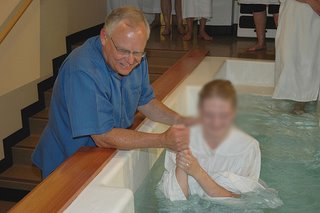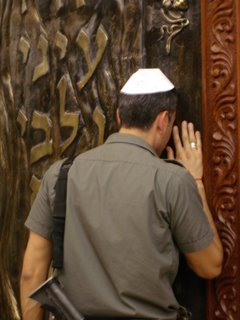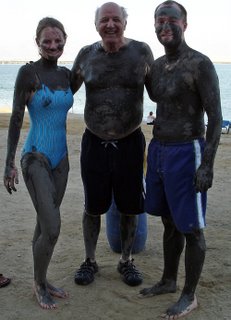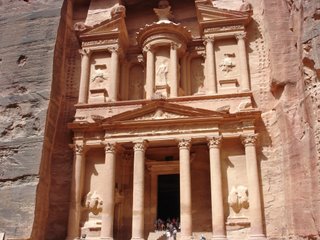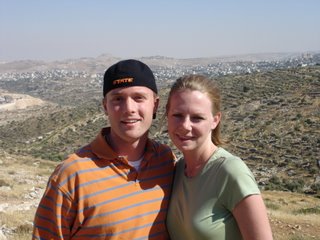 How did you do? Refer to last Thursday's post if you aren't sure what the assignment was.
How did you do? Refer to last Thursday's post if you aren't sure what the assignment was.And if you haven't already, give it a shot tomorrow - consider this a challenge.
If you attempted the excercise and listed 100 things for which you can say "blessed are You God," my guess is that you found it a little harder than you anticipated. I sure did.
It bothered me that it was so difficult - I generally think of myself as a pretty thankful person. I work hard to come at God with more than just my requests and gripes, and to be thankful for the things He's done for me. But when I try to list 100 of the things for which I can give God praise, I had a hard time.
The day started with me running late for a 7:00 o'clock meeting. As I drove through the drive-thru of our neighborhood Starbucks, I wrote on my pad "B'rakhot #1 - Thanks for the coffee." Then the Starbucks lady came to the window and handed me my cup. "Thanks for the coffee," I said.
For some reason, the fact that I said the same thing to the coffee lady that I said to God troubled me. I think that's a good thing, because it put the whole excercise of saying 100 b'rakhot in an entirely new light. The 100 b'rakhot isn't just about being thankful. It's about being thankful, but it isn't just about being thankful.
The idea of the whole excercise is to see the things that reflect God's attributes and character in the world around us - not just the stuff that God gives us.
It's hard to break out of the 10-year-old-at-Christmas mentality. You know what I mean - we say "thank you" to your parents for the gifts, but it's often rushed and insincere. After all, parents are supposed to give gifts at Christmas, aren't they? Gifts had shown up under the tree for years, so we grew to expect that they'd be there again. We were thankful, yes, but were never "awestruck" by the fact that our parents continued to give us gifts even though we really didn't deserve them.
The 100 B'rakhot excercise reminds us to be awestruck at what God does for us on a regular basis. It reminds us that even the most minute things reflect the character and attributes of the Creator God. From the minds that created the technology and innovation that make my alarm clock work every morning, to the fossil fuels that power my commute to work and school every day - God created them all. The wildflowers that spring up along the median of a metropolitan freeway reflect the creative nature of an infinite God, and the value He places on beauty and excellence. The smile of a 2-year old covered with donut crumbs reminds us of the hope God gives for tomorrow, and the wrinkled smile of a ninety-year-old bedridden saint (also covered in donut crumbs) reminds us of the hope God gives for eternity.
Blessed are You Lord, (Baruch atah Adonai), Maker of heaven and Earth, for You have done great things.


